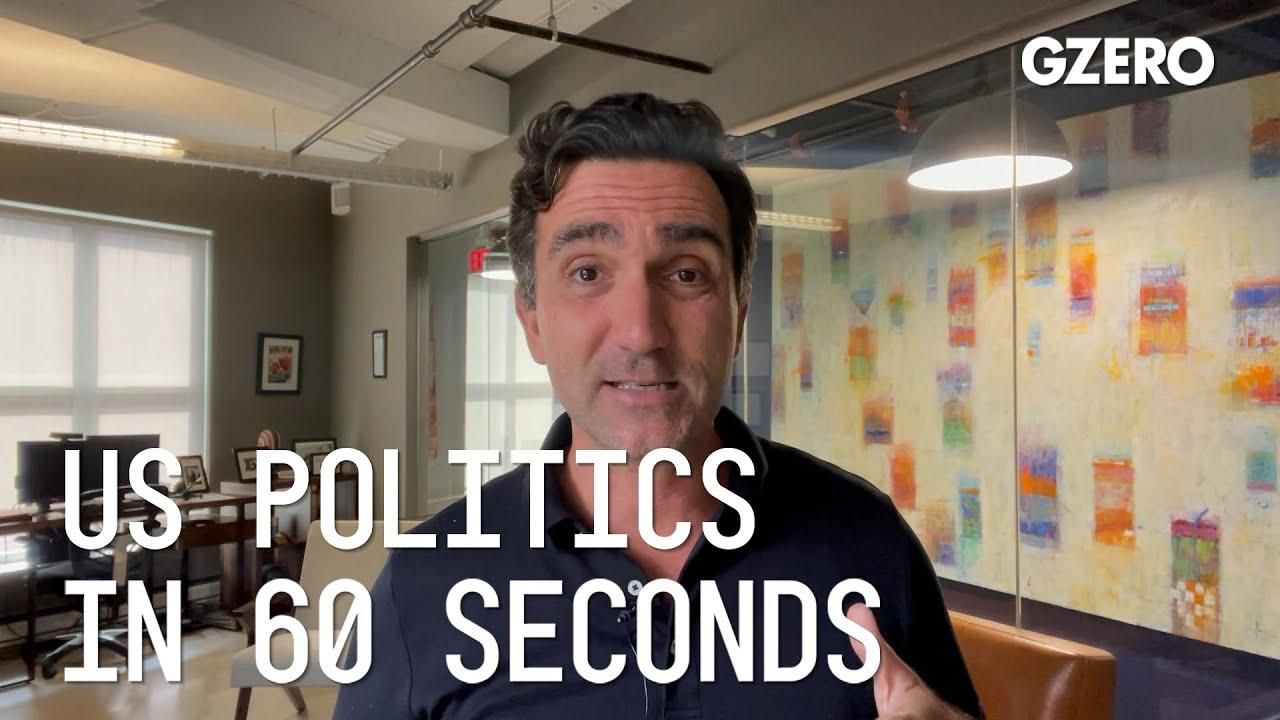US Politics In 60 Seconds
Biden's trip to Saudi Arabia is about more than pumping oil

Biden's Trip to Saudi Arabia is About More Than Pumping Oil | US Politics In :60 | GZERO Media

Jon Lieber, head of Eurasia Group's coverage of political and policy developments in Washington, shares his perspective on US politics:
What is President Biden hoping to achieve by visiting Saudi Arabia?
This week the White House announced that President Joe Biden would make a visit to the Middle East. The most important part of the trip will be a stop in Saudi Arabia and a visit with Saudi Crown Prince Mohammed bin Salman. The President came into office saying he wanted to make the Saudis pariahs for their history of human rights abuses, including the kingdom's involvement in the 9/11 attacks, the murder of journalist Jamal Khashoggi, and an ongoing war in Yemen that has resulted in tens of thousands of civilian casualties. But unfortunately for President Biden, his Middle East strategy has followed the Mike Tyson maxim that everyone has a plan until they're punched in the mouth.
Biden has found his presidency overwhelmed by high and rising price levels coming out of the pandemic. Perhaps, nowhere as bad as in energy. The national average price for a gallon of gasoline topped $5 for the first time ever this week. It's likely the problem gets worse before it gets better, and there isn't much that President Biden can do about it. Domestic oil production is slow to come online and isn't as potent as it was five years ago because of industry concerns about the long-term ability to make profits off of new wells, which has left Biden looking around the globe for additional supplies to help ease the global crunch that is driving up energy costs.
The tangible results of a meeting with the Saudis are likely to overwhelm expectations in Washington and, potentially, force Biden to play a high political price by backing off of his commitment to isolate the Saudi Crown Prince in exchange for very little. Getting the Saudis to agree to a specific commitment to put more barrels of oil in the market is unlikely, though, a narrower agreement for the Saudis to increase production caps is possible. However, this would have very little impact on high domestic gas prices as refining capacity in the US continues to be overstretched, suggesting high prices, at least, throughout the summer.
Interestingly, however, this trip is about more than just pumping oil. The Biden administration wants to provide a counterweight to the Saudis' growing relationship with Beijing. They want to get help from the kingdom in isolating Russia in the wake of the war in Ukraine and get commitments to maintain the ceasefire in Yemen, which the Saudis may be open to if the US is willing to resume arm sales.
So this trip makes sense for Biden, even if it doesn't necessarily lower gas prices. But the fact he's making it at all shows how hard it is for a US president to fundamentally change the direction of US foreign policy, which has elevated the US reliance on Saudi Arabia for over 40 years.
In this Quick Take, Ian Bremmer addresses the killing of Alex Pretti at a protest in Minneapolis, calling it “a tipping point” in America’s increasingly volatile politics.
Who decides the boundaries for artificial intelligence, and how do governments ensure public trust? Speaking at the 2026 World Economic Forum in Davos, Arancha González Laya, Dean of the Paris School of International Affairs and former Foreign Minister of Spain, emphasized the importance of clear regulations to maintain trust in technology.
Will AI change the balance of power in the world? At the 2026 World Economic Forum in Davos, Ian Bremmer addresses how artificial intelligence could redefine global politics, human behavior, and societal stability.
Ian Bremmer sits down with Finland’s President Alexander Stubb and the IMF’s Kristalina Georgieva on the sidelines of the World Economic Forum to discuss President Trump’s Greenland threats, the state of the global economy, and the future of the transatlantic relationship.